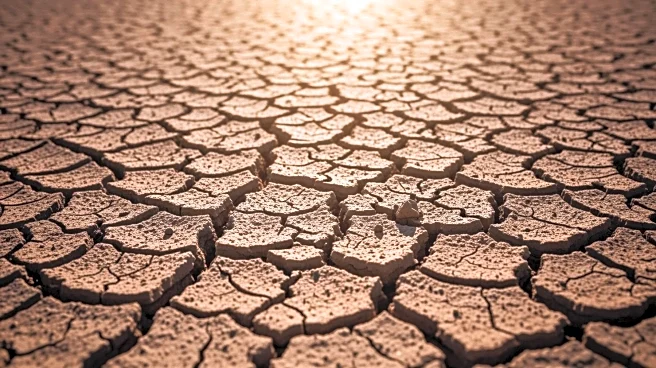What's Happening?
The COP30 conference has brought attention to the accelerating pace of climate change, with new research indicating that global temperatures are rising at a rate of 0.27 degrees Celsius per decade, nearly
50% faster than in previous decades. Sea levels are also increasing at a rate of 4.5 millimeters per year, compared to 1.85 millimeters per year since 1900. These changes are contributing to severe environmental impacts, including the potential die-off of warm-water corals and the transformation of the Amazon rainforest into a savannah due to deforestation. Additionally, the melting ice sheets in Greenland and Antarctica pose threats to ocean currents and phytoplankton growth, which are crucial for CO2 consumption. The State of Wildfires report highlights that 3.7 million square kilometers have burned between March 2024 and February 2025, producing higher CO2 emissions due to the burning of carbon-dense forests.
Why It's Important?
The findings presented at COP30 underscore the urgent need for global action to mitigate climate change impacts. The accelerated warming and rising sea levels threaten ecosystems, biodiversity, and human populations worldwide. The potential collapse of ocean currents and the transformation of major ecosystems like the Amazon rainforest could have catastrophic consequences for global climate stability. Furthermore, the increase in wildfires and heat-related health risks poses significant challenges to public health and economic productivity. The U.S. administration's proposed budget cuts to climate research agencies could hinder efforts to address these issues, while other countries are increasing their investment in climate science.
What's Next?
The international community is expected to continue discussions on strategies to combat climate change, with a focus on reducing emissions and enhancing climate resilience. The U.S. Congress will review the proposed budget cuts to climate research agencies, which could impact the country's ability to contribute to global climate science. Meanwhile, other nations are likely to expand their climate research initiatives, potentially filling the gap left by reduced U.S. involvement. The scientific community will continue to monitor climate trends and develop solutions to mitigate the impacts of global warming.
Beyond the Headlines
The ethical implications of climate change are profound, as vulnerable populations bear the brunt of environmental impacts. The potential loss of biodiversity and transformation of ecosystems raise questions about humanity's responsibility to protect the planet. The cultural dimensions of climate change are also significant, as communities worldwide face disruptions to their traditional ways of life. Long-term shifts in climate patterns could lead to geopolitical tensions over resources and migration, necessitating a coordinated global response.










